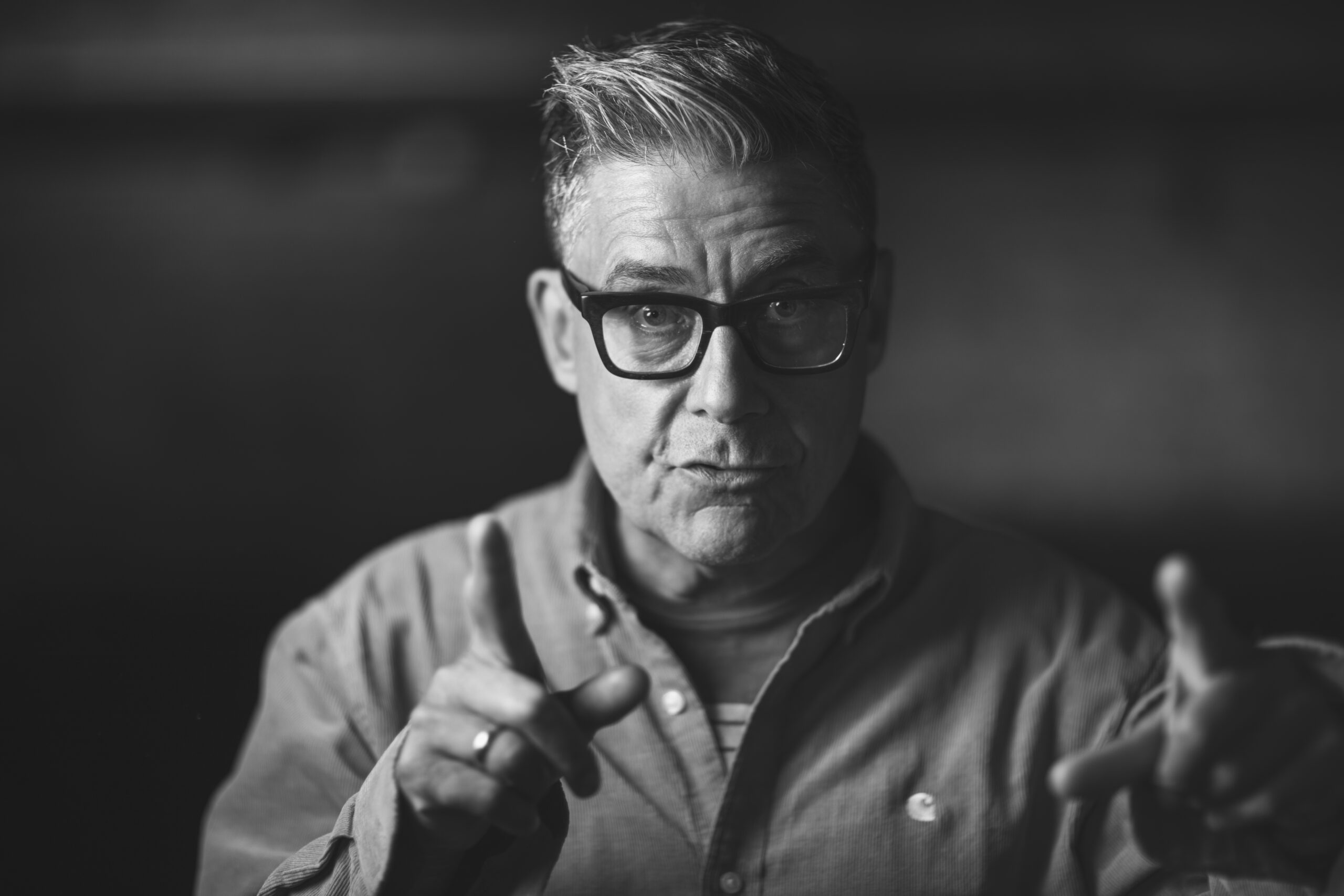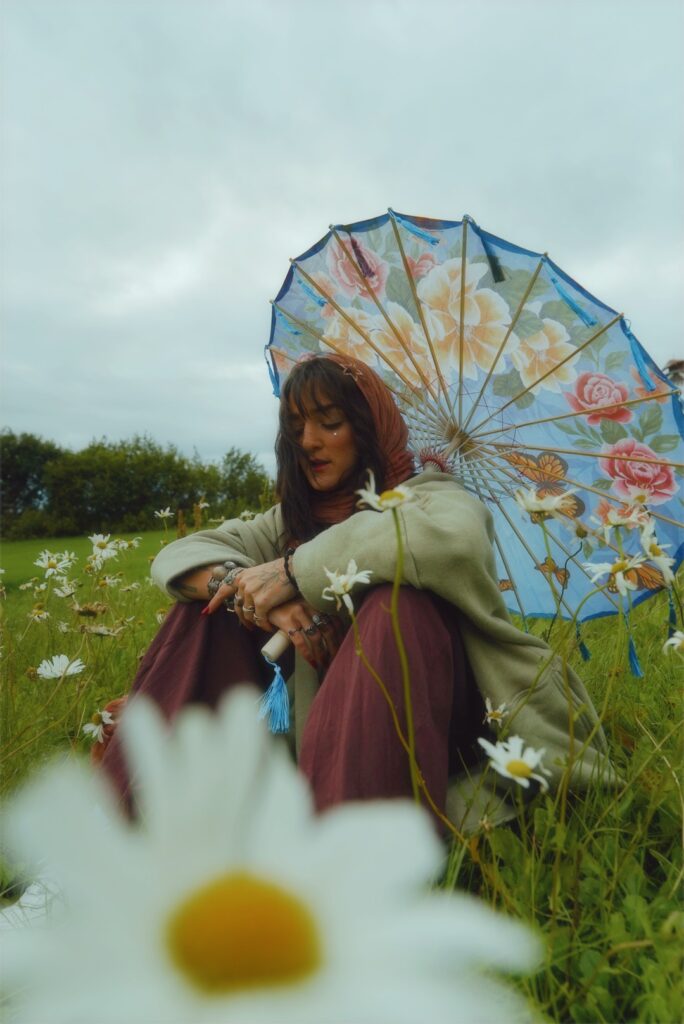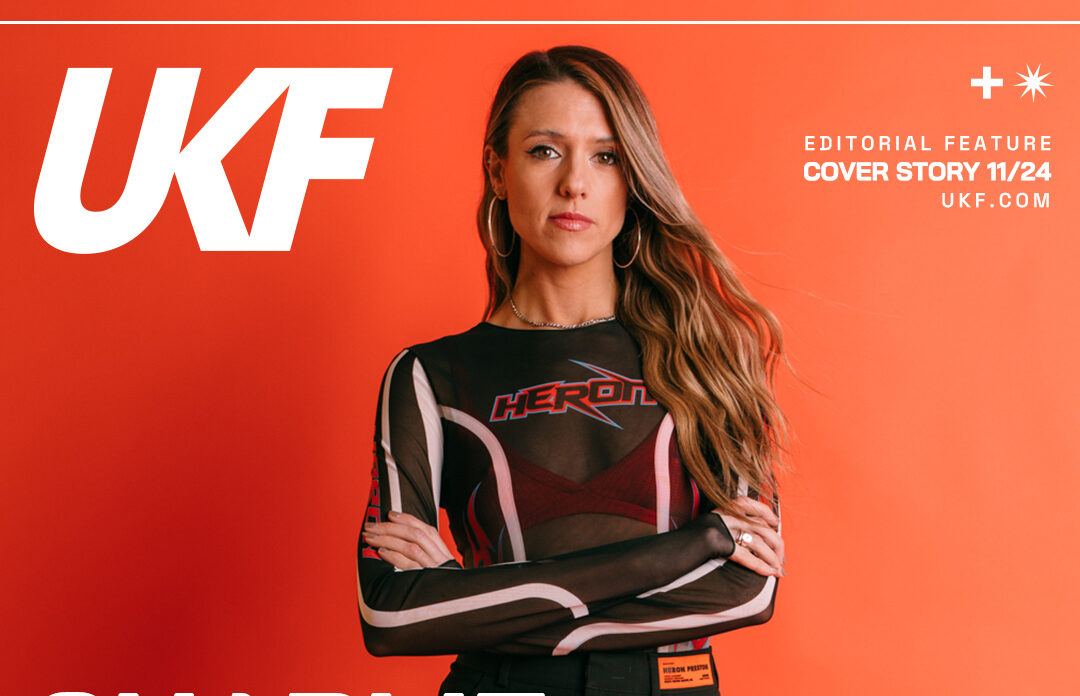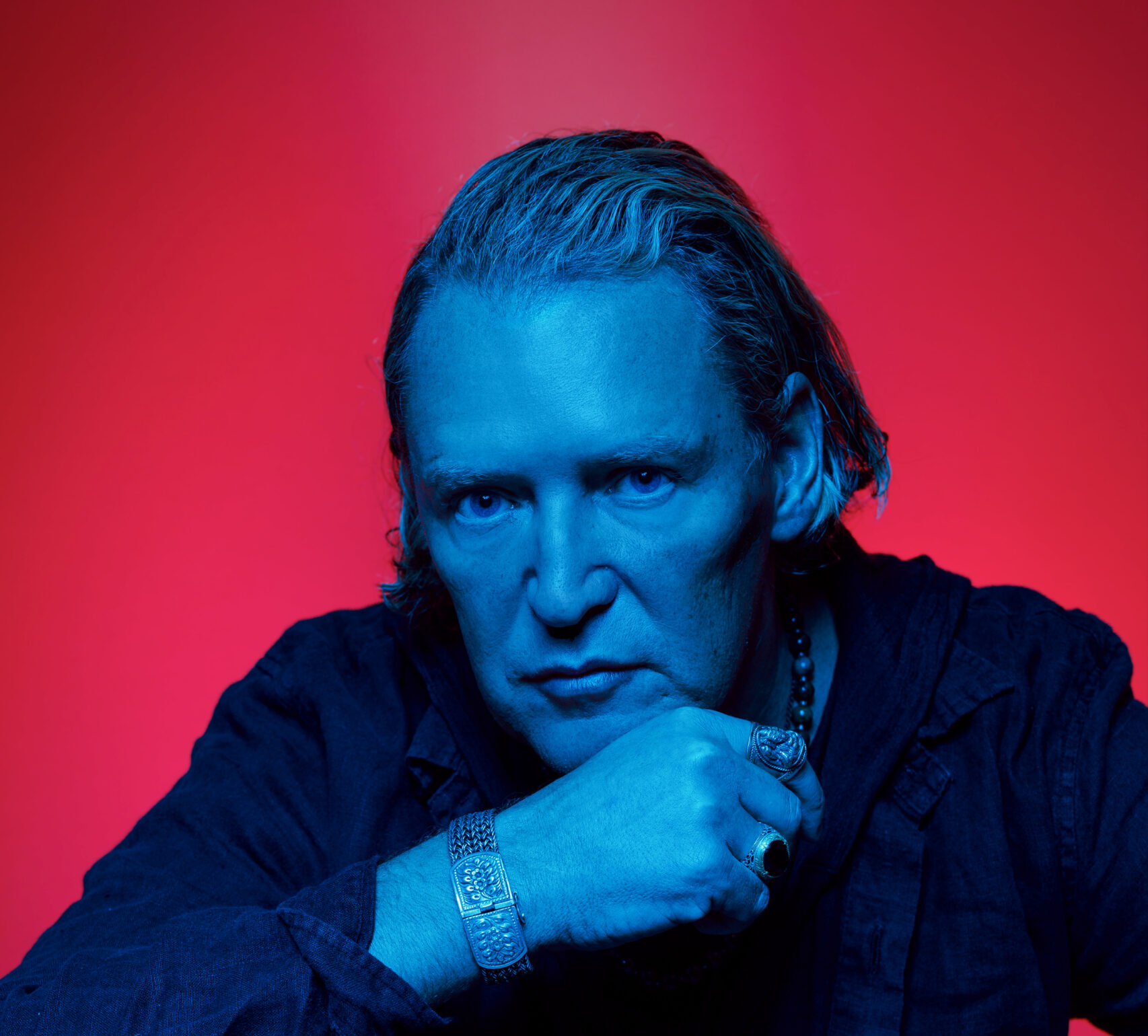
In Coversation With London Elektricity
Drum & bass legend London Elektricity has been on quite the journey recently, and we caught up with him to delve into his latest chapter. Just a few weeks back, we sat down with the iconic producer to talk about his new label Fast Soul Music—a personal venture that follows his departure from Hospital Records, the label he co-founded over two decades ago. Tony Colman, the man behind the alias, revealed his desire to return to a more hands-on, creative approach to music-making after stepping back from the responsibilities of running a large label. His vision for Fast Soul Music is rooted in that passion, as he explained: “I never wanted to sign anyone—it’s about the music.”
With upcoming releases on Metalheadz and a fresh stream of music from his own label, the future is bright. And despite his storied history, London Elektricity feels like he’s just getting started again: “It’s lovely at my age to feel like I’m at the start of something.” With a passion for fostering community, making bold statements, and keeping the music at the heart of everything, London Elektricity’s next chapter is one to watch.
Hi, what have you been up to recently?
I’ve been really, really busy having fun in the studio doing what I love I’m very lucky to be able to do that. Setting up my new label.
And How was Festival season for you?
It was good. That there’s a couple more left. I’m doing one in Winchester called Mucky Weekender, which I’ll definitely take my wellies for, and then Sun & Bass in Sardinia next week.
I’m taking my wife this year and we’ve got a 14-year-old and a 17-year-old. So actually leaving them home alone for four days. Which is going to be a new experience for them. Basically, as long as they can get themselves to school and not make a real mess of the house, then it’s a win.
I wanted to ask about your family because there have been many events I’ve been to, where you’ve brought them on stage- it’s such a nice thing to see. How are they all doing?
They’re good. I’ve got two boys, the oldest Kenji is very musical but he’s not pursuing a music-based career and he’s gonna go and study engineering at university. Chemical engineering, not sound engineering.
And Stanley he’s 14, he’s mad keen on playing the trumpet. He’s a promising trumpet player so I drag him on stage to play the trumpet over a few tunes, it’s partly for his experience but it’s partly just because it’s a vibe.
Over the years, they’ve both been around when I’ve been DJing at festivals. I’d have them on my shoulders while I played when they were toddlers and all that kind of thing. I guess it is kind of a life skill. It’s quite good for them to not be scared of being in front of lots of people, whatever they end up doing. It’s a nice thing to do when you’re a kid.
I love to see it, it makes you seem more relatable and it reiterates that the drum and bass scene can be a family-orientated space…
I do this because it’s all about sharing a feeling with the people who come and see you play. It’s about engaging with the crowd and just sharing that feeling of pure joy that this music gives us.
Let’s talk about Fast Soul Music. Where did the initial idea come from to move into more of a solo space?
I had 27 years of building and running Hospital Records. And that was quite a ride.
I stepped away from Hospital because I got a bit lost, it became too big and too corporate for me personally. That’s no criticism of the other guys who run Hospital. I actually started Hospital Records as an outlet for my own music, I never really wanted to sign anyone, but then High Contrast and Danny Bird came along and it was impossible to turn them down.
So it grew into something really quite beautiful and quite big, but for me, as CEO of that company, I was getting torn apart because what I love is the music, I love making music. I love helping people to make music and I love performing music and I love connecting with fans, but when a company reaches that size, with 30 employees, you spend all your time dealing with staff problems and paying the overheads. So it wasn’t the lovely little thing that it was- it became very different for me. I was unhappy in that situation. I’ve always said when something makes me unhappy, I’ll move away from it. So that was the decision and it was a very, very good decision for everybody concerned.
The last couple of years I’ve been, really enjoying making music, working with other artists and doing what I love. I thought, I’ll just release my music on a few different labels and it would be fun. I started to rediscover the reasons why I set up Hospital in the first place; a lot of other labels are pretty disorganised and people kept saying, “You should do your own, it’s the way forward!” I had chats with artists who’ve done that; Zinc, S.P.Y, Etherwood and a whole range of people. They all said, “It’ll be really easy with your experience Tony, just do it!”
I was quite cautious and I didn’t want to do it until I had the right people in place. I met up with Ed Priest who used to do promotions at Hospital for a while and he’s label managing Souped Up. We had a chat, I played him the new music, and he really liked it. So he’s now label manager for Fast Soul Music.
Ed’s wicked, he really is, he’s got such a great energy! Knowing that I’ve got someone who knows what they’re doing and has got the right kind of vibe and spirit, I was happy to move forward. I’m not going to sign anyone. I have absolutely no intention of growing another two-headed beast. I really hope I can stick to that.
Until another High Contrast comes along…
Then I’ll just enjoy their music…
It’s nice and I like having an outlet that I can produce for. I’ve also got music coming on Metalheads, which I’m really excited about because I’ve been a fan from the very early days. In fact, the very reason that I decided to really start working in drum and bass was because in 1995 I was in an acid jazz band called Izit . We were touring the world and I needed some time off because my head was basically exploding so I went on holiday and at the airport I bought a copy of ‘Timeless’ by Goldie to take with me to the Philippines.
That blew my mind and actually opened loads of doors and windows in my mind as to what I could do, so big up Goldie for that because it really changed the course of my musical life. So to be releasing on Metalheadz is an absolute dream and an honor. One is a track I’ve done myself and there’s a collaboration with Conrad Subs and Genesis Elijah.
I’ve also got a collaboration with BCee on Spearhead. And after that, I’m gonna be releasing music pretty much every month on my own label. And I feel really, really excited. It’s lovely at my age to be feeling like I’m at the start of something.
Is it bittersweet? Moving away from Hospital, because for me at least, it’s really hard to separate you from them, you’re completely synonymous, but now you’ve got this whole journey ahead of you…
I really have and it’s a lovely feeling. I’ve been making music for so long and still when I sit down and start making a tune I always feel like I don’t know what I’m doing and that’s a positive thing, that keeps things fresh. Otherwise, it’s very easy to get jaded if you start doing things in the same way and just banging them out, I’ve never been able to do that, it’s not in me to do that. So I always feel like I’m just at the start of something.
You’ve always had the air of someone who has massive respect for the past and where we’ve come from. But you embrace all the changes and everything that comes with it…
I think if you want to be authentic and really true to yourself and to the craft, you have to understand it only exists in the moment. Yes, there’s all this stuff that’s gone before in the past and in history, which is there for you to learn from. But that’s gone. It doesn’t exist anymore. And nothing in the future exists yet, so the only thing that exists is what we’re doing right now in this moment.
Remembering that is quite powerful. Because everything else is kind of irrelevant. it’s a real paradox because yes, it’s important to learn from the past. But it’s also important to remember that it doesn’t exist. What we do right now is what influences the future.
That’s just a very long-winded way of saying “Don’t worry about s***, keep going with what you love.”
Is that a philosophy you take in all aspects of your life?
I try to, and I try every day to make sure that that’s how I live. That involves quite a lot of meditation and basically, I guess you could say prayers, just to set myself up first thing in the morning. It’s just the way for me to completely offload all of the s*** that exists in my head, because my head is full of it. If I actually listen to what my head’s telling me the day is not going to go well, so I need to park it somewhere.
Speaking about changes, what are the biggest things you’ve seen changing the scene in the last 30 years that you’ve been a part of it?
So much has changed in 30 years. I had a second life and started DJing at 35/36, but I’m lucky in that when I started, it was all about dubplates and vinyl so I learned my craft, which gives you a different flow and different outlet. So I’ve seen all of that change- vinyl to CDs to MP3s off USB.
Basically now it’s all people using Rekordbox and that software gets slightly refined. They have to produce new hardware to keep themselves in business, it’s the same hardware slightly refined. Now you can automate what you do more which means it’s very, very easy for people to go and DJ without really knowing how to DJ because the equipment works for you. As long as you set up your key points in Rekordbox properly, you can just turn up and press sync and off you go, that’s what’s in front of us. And there’s no point in anyone saying “That’s rubbish. It’s not real DJing”. It is what it is now.
The ways of communicating have really changed, when we used to promote records, 30 years ago, you pressed up a load of white labels on vinyl and you posted them to the DJs who you wanted to actually support your music. You’d send them with the reaction sheet, which was a photocopied form that they were supposed to fill in and post back to you.
How many did you get back?
People used to do that because DJs knew that if they didn’t fill in their reaction sheets they might not get sent records anymore.
When you promote a tune now, you just spam out through email addresses and you’re lucky if the DJ listens to it and bothers to send you a little tick in the box or comments “Yeah, that’s wicked.” So it’s really changed in that respect.
And obviously, we can communicate with our fans directly now. Which is, 95% of the time, lovely. It really, is and it’s something to embrace, it’s not something to ignore. It doesn’t replace actually going to a rave playing and spending time meeting people who like your music. I love going to an event and actually meeting the people, they’ve taken time out to come and see you play- that’s a big deal. It really is because for all of us, time is the most valuable thing that we have. We don’t own time, but how we spend it is the most valuable decision that we ever make, so if people spend a few hours coming out to hear me play because they like my music or whatever, that’s incredible.
So, that hasn’t changed, the connection, that’s the same. It’s interesting, isn’t it?
You’ve got another way that you connect with people, your podcasts. What draws you to the podcast medium? What value do you think it adds to music?
I started the Hospital Podcast back in the day, RIP to the Hospital Podcast because it’s finished now. I started that in 2006. After I’d been in Australia on tour with Zinc. He said, “I’m doing this podcast thing”, and he loved it, so I thought I’ll try that. I did one and I really enjoyed it. Even back then in 2006 I got lots of feedback, I mean feedback on MySpace as it was then. Since I’ve moved on from Hospital, I’ve done my own podcast, which is called Fast Soul Music, and I’ve taken a break over the last few months from it just so I can focus on this label and being in the studio making music. But we’ll definitely be recording it on a regular basis because I do love doing it.
When I broadcast a podcast, I imagine that I’m talking to one person. It shows that I’m fairly insane because I’m happy to spend a couple of hours talking to an imaginary friend. It’s nice when you are playing music, but podcasts give you an opportunity to actually say how that tune makes you feel, ultimately music is all about emotions. As a listener, I consume and listen to music that I love, because It creates new emotions for me, and it makes connections for me when I listen to it.
When we make music we have to remember that this is actually for someone else’s emotional experience. So when you play it and you can talk about it, it’s nice to pass a little bit of that on.
Talk to us about your first two releases on FSM, they feature two incredible vocalists; Doktor and Catchng Ciaro. Why do you like working with vocalists?
In terms of the craft of actually producing, one of my favourite things is to work with vocalists. And I particularly love having a vocalist in the studio. Being there, to get my hands dirty with all of that. I love that and with Catching Cairo, that’s what we did. I sent her the sketch and she came up with a rough idea, I said “Just come to the studio and we’ll put it down.” I’d never worked with her before, but she came in and it was almost one take. It was fantastic.
I really like getting into the performance and delivery of the words and the clarity; editing the lyrics on the spot and all of that. I really love helping the vocalists to be the best version of themselves on that recording- it’s an absolute joy.
With Doctor it was different he did the vocal in his own studio and sent it over. Then it was a process of collaborating with him on how to structure it and change it again a very, very rewarding experience. They’re both wicked vocalists. And I just love good vocals, I like making instrumentals as well but I just love the human interaction- most singers are a bit crazy and pretty funny. It’s a good laugh.
What else have you got coming up?
I’ve got a tune that’s finished. It’s a collaboration with DJ Marky and Makoto with Vonne on vocals, who is an incredible R&B/gospel singer. What she’s done on this tune is unbelievable. My tune with BCee has got the amazing Ruth Royal on vocals. And then next year, we’ve got a tune finished which is another vocal- it’s a collaboration with Anile and Zara Kershaw on vocals. And they’re beautiful vocals.
You collaborate with such varied artists…
I collaborate with people that I really, really love and love their music and respect. I think it’s important to keep things varied to stop things getting stale.
I wanted to talk to you about social responsibility. You talk about politics quite openly, which a lot of artists can shy away from because they don’t want to alienate people. There’s a lot of love and respect for you for pushing good energy. Why do you think that’s important and is there a balance that needs to be considered?
Why is it important? We can’t change anything by keeping quiet about it. There are certain things in life that are much more important than how many followers you’ve got and how many people are streaming your music. When I get my teeth into a cause, it becomes very important to me. And some things I just have to stop and go “What the f***. This needs talking about!”
When Russia invaded Ukraine. That was one such occasion for me. Partly because I have a lot of social connections in Ukraine. Before that, I had friends in Ukraine and Russia, once Russia invaded Ukraine I did reach out to some of my Russian friends and asked “What’s your take on this? What do you think?” Some of them were like “Yeah this is s***, Putin is insane!” Some of them actually wouldn’t talk about it at all.
For my Ukrainian friends, it was a case of doing what I could to support them in their country. I’ve been able to visit twice during the war, I went in July last year and I went in May this year. Just to go and play for free to help them raise money for humanitarian aid and their own forces. That’s the only way that I can help.
I also went to bear witness that this actually is happening because there’s still a lot of people who believe the Russian-influenced, right-wing media that they see online. They actually think that it’s not happening at all and that it’s been created by the deep state. But I’ve been there, I’ve seen it with my own eyes. It was a real privilege.
How is that for you?
Last year I was taken around some places where in the first few days of the invasion, the Russian forces came in and occupied. It’s where they committed various acts of genocide. I’ve seen all of that with my own eyes and I was shown around by a Commando from Special Forces in Ukraine. It was pretty gobsmacking to see it all. I saw the pile of vehicles that were pulled off the bridge when the Russian forces came into the occupied area, civilians were trying to get out across the bridge towards Kyiv- they were just hit with machine guns and murdered in their cars.
There’s a huge heap of vehicles, full of bullet holes.
It’s very sobering but I knew that I was lucky to be told the story by someone who was actually there. To actually see it with my own eyes, because it’s important that we can, then relay this to people who aren’t living in the war. This war is ongoing, people are getting bombed and shelled all the time. It’s been three years now, it has become the norm so it doesn’t get reported on very much. But it’s actually getting worse, so I do what I can.
The other cause is what’s happening in Gaza. And that’s a really difficult one for people to talk about. Because there’s so much entrenched in the history of the Jewish people, and it’s very confusing for a lot of people to get a very conflicted about it. But the fact of the matter is, it’s not anti-Semitic to criticize the Israeli government. It’s got nothing to do with spiritual matters or religious matters if they are behaving in a genocidal way it needs to be told and it needs to be called out.
You asked about striking a balance and it is important that you do strike a balance because if you’re going to constantly spout politics on your music-related channels, then you’re going to switch off a lot of people- and you actually destroy the mechanism by which you can carry a message. So it’s really important to know when to stop. That was something I didn’t used to be very good at. I used to shoot my mouth off about all sorts of things and piss off loads of people. Now I try to do things in a slightly more balanced way.
What would you say to any younger musicians, who maybe would want to say something for a particular cause, but are a little worried about what might happen? Would you advise them or is that something that someone needs to think about in their own?
It really is a matter of your own intuition. No one can tell you what to do and what not to do. But I will say first of all make sure that it’s researched. Don’t start speaking about something that you don’t know about. Because you’ll get called out on it and you’ll feel like a complete idiot.
It needs to be something that is true. Especially in these days of massive fake news that’s put in front of us to manipulate how we think and how we act.
Also, don’t do it if you’re not prepared to face the consequences. If you’re too fragile to deal with the hate that may come back at you- then really you’ve got no business doing it in the first place. That being said, doing it when you’re unprepared for the consequences, can be very good lesson, it can actually teach you to become stronger.

























Comments
0